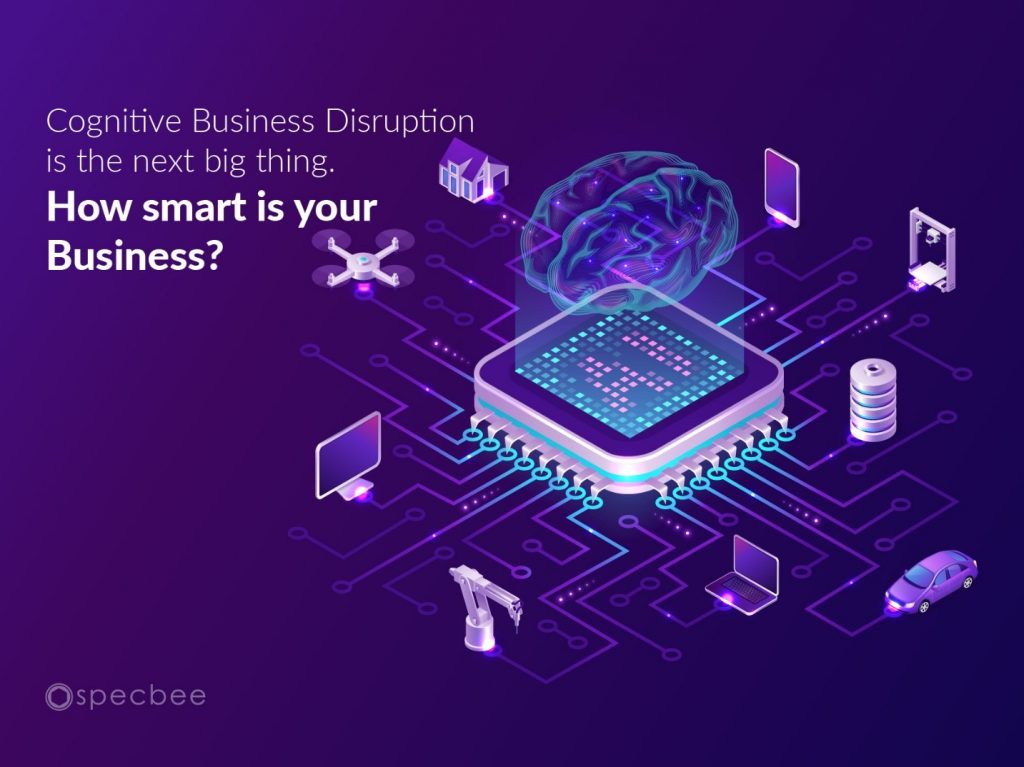Amidst the constant battle between the intelligence levels of a human versus that of machines, the latter mostly seems to be the winner. Reasons cited: lesser prone to errors, unaffected by emotions, automated results and much more. However, a set of people argued otherwise. Reason cited: Cognitive thinking. Human beings are gifted with cognition, the ability to learn through knowledge and experiences, create memories, make decisions and judgements. But then entered Artificial Intelligence and Cognitive computing which brought in a next wave of technology disruption.
How is Cognitive computing different from Artificial Intelligence?
Technology today can simplify human tasks and do an excellent job at that. This technology has come to be known as Artificial Intelligence (AI). AI can help solve complex problems and focuses on providing precise results. These are achieved through algorithms and various theories. It can easily simulate human senses, learning, processing and responding through machine and deep learning. Cognitive computing is a subset of AI which also helps augment and simplify human tasks. But it does so by mimicking human cognitive thinking abilities like reasoning, learning from experiences, decision-making and more. Cognitive technology can understand unstructured data exceptionally well. Although both AI and Cognitive computing can achieve similar results, they take different approaches to get there. There is a very fine line between them both and hence they are conveniently used interchangeably.
About Big Data, Dark Data and Cognitive Technology
Did you know that even one click of a button or a movement of your cursor can generate data? Approximately 40 Exabytes of data from a single smartphone user every month! Imagine that multiplied by the population of technology users around the world and we get dizzying results. This colossal amount of data is Big Data and we all know how precious Big data is for businesses. Big data can be classified into Structured, Semi-structured and Unstructured data. AI technologies and applications are capable enough to handle/process structured and semi-structured data very efficiently.
Since Unstructured data (a.k.a “Dark Data”) come in formats that are hard to categorize and process, they are often ignored and considered irrelevant. Formats include images, X-rays, video, audio, sensor information and more. Due to this nature, it takes more resources and energy to process this kind of data. Thus, increasing costs to store and analyze Dark data for enterprises. However, Dark data comprises for around 80% of the digital data that is available in the world today. Organizations are now increasingly understanding the need for smart insights from the dark data that they have been ignoring all this while. Cognitive computing specializes in processing and comprehending this Dark data.
Although cognitive technology can simulate human cognitive thinking, reasoning, judging and learning skills, humans are still required to be in control. Leaving everything to cognitive technology could be a risk to security and safety of the organization’s information. Cognitive technology exists to assist humans and not replace them.
Cognitive Business Disruption for Smart Businesses
In today’s world of cut-throat competition, businesses are on a constant struggle to stay ahead of the technology curve. It is time for businesses to get smarter. And smart businesses need to implement smart technologies that can work on internal/external data to provide smart insights. Cognitive computing systems leverage advanced big data technologies and supplements information that enables businesses to take better decisions. When traditional intelligent systems fail to work when they are encountered with a new situation because they aren’t programmed for it, cognitive technology can successfully continue to process information because of its ability to learn and adapt to new scenarios. Enterprises today need a human-like system that can augment human tasks.
Whom does it impact?
Cognitive business disruption should be leveraged by all those smart enterprises who believe they can reduce customer churn rate and increase customer retention rate with the help of big data. With smart insights from cognitive technology, businesses can –
- Improve marketing efforts by offering customized products and services.
- Reduce customer acquisition costs by targeting the right audience that are more likely to convert.
- Provide exceptionally personalized content to users based on their interactions with other technology points like social media, emails, websites, etc.
- Understand consumer behavior and make better offers to retain them.
- Reduce consumer complaints by acting upon the cognitive insights that better understand consumer behavior.
To cite an example, let us look at Anthem inc. which is a company providing health benefits. They implement IBM’s cognitive and cloud computing technology that has helped them provide their customers with 24/7 digital reach, improve their healthcare plans and reduce wait time for authorization process based on smart insights on patient records, doctor notes, clinical feedback and more. This has rapidly and vastly improved their customer satisfaction index and scaled their business operations.
Final Thoughts
Big data is precious but unless it is processed and analyzed by AI and cognitive technologies, they are pretty much worthless. The cognitive business disruption is here to stay and will make businesses smarter. The time to harness this tech wave is now and businesses are already seeing great results by adopting cognitive technology into their day-to-day business activities.
Author Bio
Shefali Shetty is the Marketing and Communications manager at Specbee, a top Drupal development company. She enjoys sharing knowledge and crafts engaging articles around technology innovations and open source.
